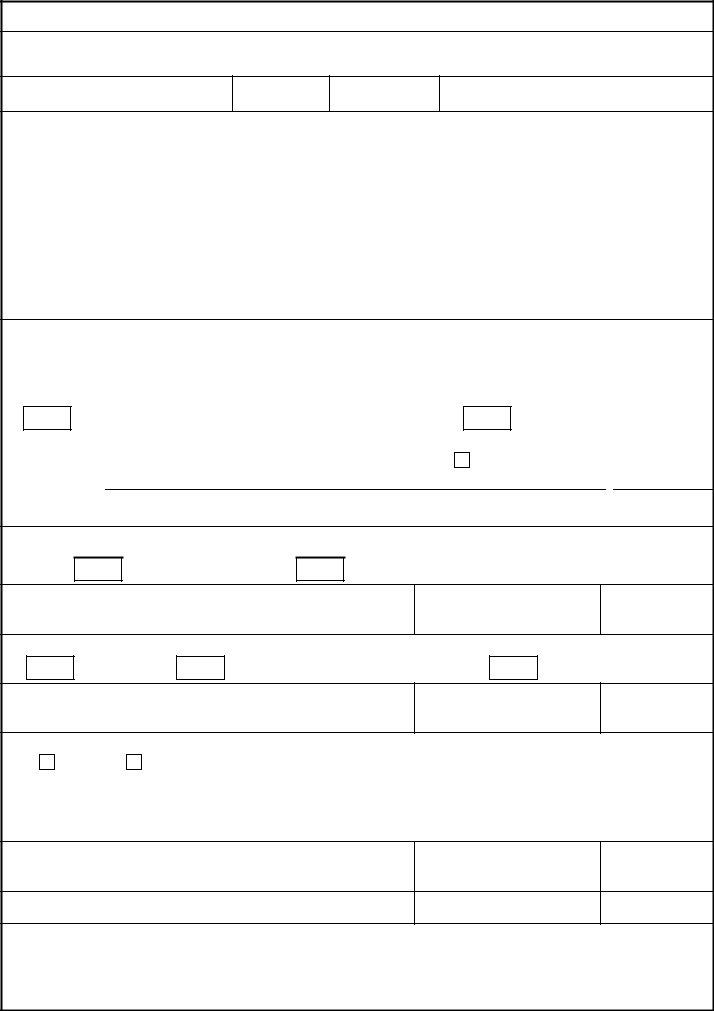The DA Form 2627-1, or the Summarized Record of Proceedings under Article 15, UCMJ, serves a pivotal role in the disciplinary framework of the United States Army, underscoring the military's commitment to maintaining order and discipline among its ranks. Its procedural guidelines, as laid out in AR 27-10, Chapter 3, highlight the form's purpose in facilitating non-judicial punishment for enlisted personnel accused of minor offenses. The form meticulously records the proceedings, beginning with informing the soldier of the alleged misconduct and their rights, including the choice to demand a trial by court-martial instead of accepting Article 15's proceedings. This document meticulously outlines the possible punishments, which are deliberately capped to ensure fairness and proportionality—restricting commanders to imposing no more than 14 days of extra duty or restriction, or an oral reprimand. Crucially, it also charts the soldier's options for appeal, ensuring that the principles of justice and due process are upheld within the military's unique disciplinary context. Moreover, the aftercare of the DA 2627-1 form—in terms of its maintenance in the unit’s nonjudicial punishment file for a limited time and not in the soldier’s official military personnel file—reflects a nuanced approach to discipline that acknowledges the opportunity for redemption and rehabilitation. By weaving together a framework of accountability with safeguards for the rights and dignity of those accused of minor transgressions, the DA Form 2627-1 acts as a linchpin in the military's ongoing efforts to uphold high standards of conduct and performance among its personnel.
| Question | Answer |
|---|---|
| Form Name | Da Form 2627 1 |
| Form Length | 3 pages |
| Fillable? | No |
| Fillable fields | 0 |
| Avg. time to fill out | 45 sec |
| Other names | da form 2627, da form 2627 1, 2627, 1 |

SUMMARIZED RECORD OF PROCEEDINGS UNDER ARTICLE 15, UCMJ
For use of this form, see AR
A summarized Article 15 may only be used for enlisted personnel. The punishments that may be imposed are limited to: extra duty for 14 days or less, restriction for 14 days or less, an oral reprimand/admonition, or any combination thereof. The imposing commander will ensure that the Soldier understands the rights found on page 2 of this form. An NCO will normally go over these rights with the Soldier.
NAME
GRADE
SSN
UNIT & LOCATION
1. On |
|
, 20 |
|
the above Soldier was informed that the commander was considering imposition of nonjudicial punishment under |
|
|
|
the provisions of Article 15, UCMJ, Summarized Proceedings, for the following misconduct:
2. The member was advised that no statement was required, but that any statement made could be used against him or her in the proceeding or in a court
Guilty of all offenses OR |
|
Guilty of the offenses not lined out OR |
|
|
|
Based on the findings, I imposed the following punishment (s):
Not guilty of all offenses (destroy form)
Extra Duty for |
|
days (max of 14) |
Restriction for |
|
days (max of 14) |
|
|
|
|
|
|
The punishment(s) of
Oral reprimand or admonition
suspended, to be automatically remitted if not vacated before |
|
. |
(WAS / WERE) |
|
|||
|
(DATE) |
|
|
3.I advised the Soldier of his or her right to appeal to the next superior authority within five(5) calendar days, that an appeal made after that time could be rejected as untimely, and that the punishment was effective immediately unless otherwise stated. The Soldier:
Elected immediately not to appeal
Requested a reasonable time to decide whether to appeal.
NAME, RANK, AND ORGANIZATION OF COMMANDER
SIGNATURE
DATE
4.(Initial appropriate block, date, and sign)
a.
I do not appeal. b.
I appeal and do not submit matters for consideration. c.
I appeal and submit additional matters
NAME AND RANK OF SERVICE MEMBER
SIGNATURE
DATE
5. After consideration of all matters presented in appeal, the appeal is:
Denied
Granted as follows:
NAME, RANK, AND ORGANIZATION OF COMMANDER
SIGNATURE
DATE
6. I have seen the action taken on my appeal.
SIGNATURE OF SERVICE MEMBER
DATE
7. ALLIED DOCUMENTS AND/OR COMMENTS
DA FORM |
PREVIOUS EDITIONS ARE OBSOLETE. |
Page 1 of 3 |
|
|
APD LF v1.01 |

SUMMARIZED ARTICLE 15 RIGHTS, MAXIMUM PUNISHMENTS, AND FILING:
Article 15, UCMJ, is a federal law that permits commanding officers to conduct
Summarized Article 15 procedures are the most informal type of Article 15 proceeding and are governed by the rules in AR
SOLDIERS HAVE THE FOLLOWING RIGHTS AT A SUMMARIZED ARTICLE 15 PROCEEDING:
a.To refuse Article 15 proceedings and demand trial by
b.To remain silent and to not make any statement about the charged offenses. Any statement made may be used against the Soldier in any other proceeding, including a trial by
c.To confront witnesses, to examine the evidence, and to present matters in defense, extenuation, or mitigation.
d.To appeal the findings and punishment to the next superior authority.
e.To be given a reasonable amount of time (normally 24 hours) to decide whether to accept summarized Article 15 procedures or to demand trial by court- martial. Because of the limited nature of potential punishments under a summarized Article 15 proceeding, the Soldier has no right to consult with legal counsel.
MAXIMUM PUNISHMENTS UNDER SUMMARIZED ARTICLE 15 PROCEEDINGS:
Regardless of the rank of the commander imposing a summarized Article 15, the maximum punishment may not exceed 14 days extra duty, 14 days restriction, an oral reprimand or admonition, or any combination thereof.
THE RECORDING AND FILING OF SUMMARIZED ARTICLE 15 FORMS:
The proceedings will be reflected on DA Form
The form will be destroyed at the end of two years from the date of imposition of the punishment, or upon the Soldier’s transfer from the unit, whichever occurs first. A copy will be provided to the Soldier if a request is submitted during the filing period. The DA
THE NEED TO IMPROVE STANDARDS OF PERFORMANCE AND CONDUCT:
Soldiers found guilty at any Article 15 proceeding, including a summarized proceeding, are considered to be on notice that they must improve their conduct and performance. An Article 15, whether summarized or formal, may form the basis, in whole or in part, for an administrative separation that results in a less than honorable discharge. Soldiers are strongly encouraged to exhibit the behavior necessary to receive an Honorable Discharge. If not, one or more of the following situations may occur:
a.The Soldier may be separated with a General Discharge under Honorable Conditions or with an Other Than Honorable Discharge.
b.A Soldier separated with less than an honorable discharge may be barred from ever enlisting again, may encounter problems securing civilian employment, and may forfeit the many benefits generally associated with an Honorable Discharge.
e. The Soldier should know that the likelihood of upgrading a less than honorable discharge, while possible, is unlikely.
DA FORM |
Page 2 of 3 |
APD LF v1.01

Continuation Sheet, DA Form
DA FORM |
Page 3 of 3 |
APD LF v1.01